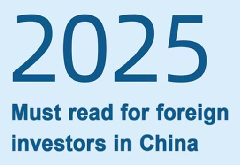Provisions for Drug Registration
Provisions for Drug Registration
Issued on March 30, 2020
Decree of the State Administration for Market Regulation
No. 27
The Provisions for Drug Registration, adopted at the first executive meeting of the State Administration for Market Regulation on January 15, 2020, is hereby promulgated and shall come into force as of July 1, 2020.
Minister: Xiao Yaqing
January 22, 2020
Provisions for Drug Registration
(Promulgated by Decree No. 27 of the State Administration for Market Regulation
on January 22, 2020)
Chapter I General Provisions
Article 1 To regulate drug registration and ensure the safety, efficacy and quality controlbility of drugs, these Provisions are formulated in accordance with the Drug Administration Law of the People's Republic of China (hereinafter referred to as "Drug Administration Law"), the Law of the People's Republic of China on Traditional Chinese Medicine, the Vaccine Administration Law of the People's Republic of China (hereinafter referred to as "Vaccine Administration Law"), the Administrative Licensing Law of the People's Republic of China, the Regulations for the Implementation of the Drug Administration Law of the People's Republic of China and other laws and administrative regulations.
Article 2 These Provisions are applicable to drug research and development (R&D), registration, supervision and administration for the purpose of marketing within the territory of the People's Republic of China.
Article 3 Drug registration refers to the process where drug registration applicants (hereinafter referred to as "applicants") submit applications for clinical trials, marketing authorization and renewal of registration as well as supplementary applications as per statutory procedures and relevant requirements, and where the drug regulatory departments decide whether or not to approve such applications after reviewing the safety, efficacy and quality according to laws and regulations and existing scientific recognition.
After obtaining the Drug Approval License, an applicant becomes a Marketing Authorization Holder (hereinafter referred to as "MAH").
Article 4 Drug registration is classified into such categories as traditional Chinese medicines (TCMs), chemical drugs, biological products, etc.
Registration of TCMs is classified into such categories as innovative TCMs, modified new drugs of TCMs, compound preparations of TCMs originated from classic recipes, TCMs with identical name and identical recipes, etc.
Registration of chemical drugs is classified into such categories as innovative chemical drugs, modified new chemical drugs, generic drugs, etc.
Registration of biological products is classified into categories such as innovative biological products, modified new biological products, biological products already marketed (including biosimilar products), etc.
The detailed classification of TCMs, chemical drugs, biological products and other drugs, as well as the corresponding requirements on application dossiers, shall be formulated by the National Medical Products Administration (hereinafter referred to as “NMPA”) according to the product characteristics, innovativeness and review management needs of the drugs to be registered, and shall be made public.
Registration applications for drugs manufactured overseas shall be carried out in accordance with the detailed classification of drugs and the corresponding requirements on application dossiers.
Article 5 The NMPA is in charge of the administration of drug registration nationwide and is responsible for establishing the systems, policies and practices for drug registration administration, and for organizing review and approval of drug registration and relevant supervision and administration in accordance with the law. The Center for Drug Evaluation of NMPA (CDE) is responsible for evaluating drug clinical trial applications, drug marketing authorization applications, supplementary applications, and registration renewal applications of drugs manufactured overseas, etc. The National Institutes for Food and Drug Control (NIFDC), the Chinese Pharmacopoeia Commission (CPC), the Center for Food and Drug Inspection of NMPA (CFDI), the Center for Drug Reevaluation of NMPA (CDR), the Center for Administrative Services and Complaints & Reports of NMPA, the Center for Information of NMPA (NMPAIC), and other specialized technical institutions for drugs shall undertake such work as drug registration testing, adopted name approval, inspection, monitoring and evaluation, making and delivery of certificates, as well as building and managing the corresponding information system needed for the administration of drug registration in accordance with the law.
Article 6 The drug regulatory departments of the provinces, autonomous regions, and municipalities directly under the Central Government are responsible for the following administrative tasks pertaining to drug registration within their respective administrative regions:
(1) Acceptance, examination and approval of applications for registration renewal of drugs manufactured in the territory of the People’s Republic of China;
(2) Administration of filing and reporting for drug post-marketing changes;
(3) Organizing routine supervision of drug nonclinical safety evaluation institutions and drug clinical trial institutions, as well as investigation and penalty of illegal acts;
(4) Participating in drug registration inspection, testing and other tasks organized by the NMPA;
(5) Tasks pertaining to drug registration entrusted by NMPA.
Specialized technical institutions for drugs set up or designated by drug regulatory departments of provinces, autonomous regions and municipalities directly under the Central Government shall undertake the review, testing, inspection, monitoring and evaluation and other tasks required for drug supervision and administration in accordance with the law.
Article 7 The administration of drug registration shall follow the principles of openness, fairness and impartiality, emphasize clinical values, and aim at encouraging the research and development of new drugs and facilitating the development of generic drugs.
The NMPA shall persistently push forward reform of the review and approval system, optimize the review and approval process, improve the review and approval efficiency, and establish a drug registration management system guided by review and supported by testing, inspection, monitoring and evaluation, etc.



